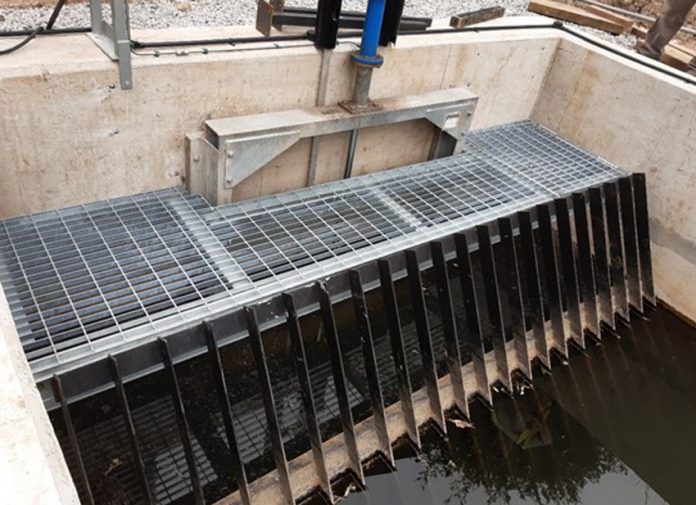With an air of tension to match that in NASA mission control, the Congleton hydro scheme recently fired up Archie the Archimedes screw in anger – and it was a case of “we have a problem Houston” rather than “all systems go”.
The latest Dane Valley Community Energy newsletter reports that after pressing the start button and standing back to admire the automatic system taking came an electrifying moment – “clunk, bang, sparks, lights dimming, alarm panel lit up like Christmas lights … Scared the life out of us”.
But there was no damage done: the sparks were from the brake correctly operating in emergency stop mode, the clunk was from the input breaker opening, the bang was from the brake closing and the problem was caused by the torque required to start exceeding the settings on the variable speed drive.
The dramatic moment followed testing using laptops rather than the automatic system. Because of the very low river water levels, testing could only be in short bursts before low water level sensors kicked in.
These initial runs were carried out in “development mode”, with the system running from manual programming rather than the automated run sequence of the control system programmable logic controller. This allowed testers to manually control the sequence and timings of the various activities.
Dramatic bangs aside, a positive point was that during initial testing, the power transmitted was “about the same” as power being received by Siemens, so original calculations that a 300mm aluminium cable would give an acceptable loss over 1km were broadly correct.
Before full operations can start, the Environment Agency abstraction licence conditions must be checked and approved. Once this is obtained, the next stage is more testing and fine-tuning before Ofgem gives connection approval.
Annual meeting
At the end of June, Dane Valley Community Energy held its annual meeting via Zoom.
It was reported that despite the impacts of covid, “desperate” weather conditions, unforeseen ground conditions and challenging rock structures, the overall financial position of Congleton Hydro was “more or less” as described in the original share prospectus.
The key objective of the scheme is to generate an annual surplus to be used for community environmental and sustainability projects. Even though Archie will only generate revenues for part of this year, it is still hoped to produce a small surplus, to be added onto next year’s to give the community projects programme a good start.
The water inlet structure walkway – which will allow the detritus from the river (twigs, branches, trees even the odd sheep) to be safely “raked” off the trash screen – caused some grief because of the expensive quotes received from various suppliers but a local Congleton company designed and installed a suitable system at a much more realistic price. The project has made good progress on a practical Stem – science, technology, engineering, mathematics – project, which it is hoped to launch later this year. This is a team construction, operation, and measurement of “How much electrical energy can you get from a bucket of water”.
Stone expert wanted
The project also has to decide what to use as fencing: a wooden fence or a stone and wrought railing insert wall. The wooden fence would be cheaper, the stone would have better longevity.
The stone is preferred but laying it will be costly – the project has made a “desperate” plea for a competent walling stone expert or bricklayer to help out. If anyone can help, email info@congletonhydro.co.uk



